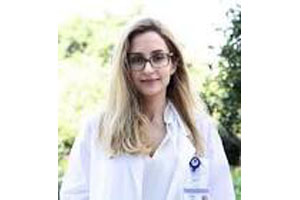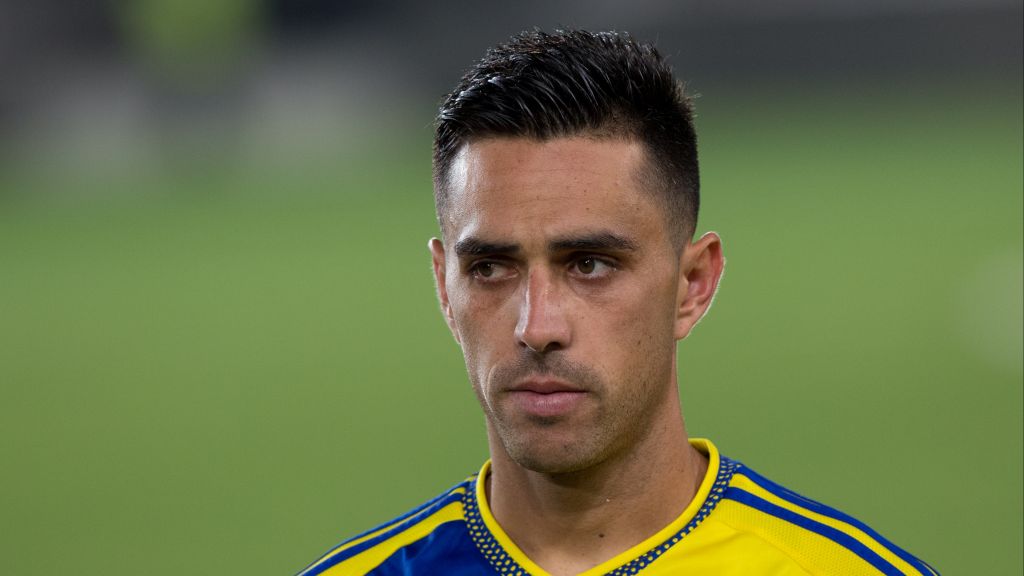Israel
Arab-Israeli plays critical role in Israel’s medical system

By MYRON LOVE Dr. Marian Khatib is a testament to the inclusive nature of Israeli society – and outs the lie to accusations of no-nothing Israel-haters.
As reported in the October 31 edition of The Jerusalem Post, the 40-year-old mother of two, raised in a small Arab village outside Acre, has just been appointed the director of the Breast Surgery Center at Tel Aviv Sourasky Medical Center.
Jerusalem Post writer Maayan Joffe-Hoffman reports that Khatib is Israel’s first Arab breast surgeon – and the only oncoplastic breast surgeon in Israel’s public health system who performs both the resection and the reconstruction for breast cancer patients.
“I am proud that the public medical system in general and this hospital, in particular, do not have a glass ceiling,” Joffe-Hoffman quotes the doctor as saying. “I ask every girl, no matter where she grew up and what her background is, to see me and to believe that anything is possible and that the sky’s the limit.”
According to Joffe-Hoffman, Khatib was born in the United States to Arab-Israeli parents, who returned to Israel when she was just a baby. At a young age, her parents had her assessed, she was diagnosed as gifted and they decided to invest in her education. They moved to Acre and sent her to school in Haifa, where she could receive enrichment classes.
After she graduated, she began studying medicine at The Hebrew University in Jerusalem.
“I was fascinated by general surgery and decided that a surgeon is what I wanted to be,” she said. “When I started in surgery, there were a few women who worked as surgeons and even fewer who specialized in a disease that is so feminine and intimate. Over the years I realized that I wanted to be there – a woman for the women,” she continued.
Joffe-Hoffman quotes Khatib as saying that “being Arab has never been a barrier to building these connections”. In fact, before her appointment became public, she said that she “rarely considered her religion as part of her profession. Before then, she said she is not even sure that her patients knew her personal history”.
“Happily, I was educated so that if you work hard – you will go far,” said Khatib, who lives with her family in northern Tel Aviv. She noted that her eight-year-old son is studying at the Tabeetha School Jaffa, where he studies in English and learns Arabic and Hebrew, too. Her daughter attends a Jewish preschool.
She added that she chose to send her children to Tel Aviv area schools because she wants them “to be part of our general community, not marginalized into a certain stream. I want them to live without having to define themselves.”
About 10 months ago, reports Joffe-Hoffman, Khatib started working part time at Holy Family Hospital in Nazareth, reconnecting with an Arab community. It was then that she realized how much pride they felt in her accomplishments.
“I got very positive feedback” from the Arab community “after the appointment,” Khatib said.
And Khatib is not an outlier in her chosen field of work. As reported in the October 3rd edition of Haaretz by writer Ronny Linder, “according to the Health Ministry’s chief economist’s office, 67 percent of license recipients in all the health care professions in 2017-2018 were from the Arab population. In addition, 63 percent of all the medical students, 84 percent of the nursing students and 82 percent of the pharmacology students were Arabs”.
And the numbers are growing. The 2020 data show that the Arabs and Druze in Israel, who make up about 20 percent of the country’s population, constitute almost half (46 percent) of recipients of medical licenses; half of the new nurses, male and female (50 percent, as compared with just 9 percent in 2000); and more than half the dentists (53 percent) and pharmacists (57 percent).
In addition to the fact that Arabs comprise a vastly larger proportion of the medical field than their share in the population, Linder reports, “this meteoric surge within just two decades has transformed the face of medicine in Israel. Besides the leap of more than fivefold in the number of Arab nurses since the start of the century, there has been a fourfold increase in the number of Arab physicians, the number of Arab dentists has more than doubled and the overall proportion of Arab pharmacists has almost tripled, from 21 percent in 2000 to 57 percent in 2020.”
So why do so many Arab-Israelis gravitate to the healthcare field? A separate article, quotes one doctor’s explanation. Marian Tehawkho is director of the Center for Economic Policy of the Israeli Arab Society, which is part of the Aaron Institute at Reichman University (formerly the Interdisciplinary Center Herzliya).
She notes that in high-tech, for example, it’s not enough to have an engineering degree, you need connections such as having served in the army’s Intelligence Unit 8200. While most Jewish Israelis (excluding the Haredi community) are obligated to serve in the IDF, Arab Israelis are not – although they can voluntarily enlist as many Druze and Bedouin and a growing number of Christian Arabs do.
She adds that “in many instances, Arab candidates have no chance of succeeding in an interview because of their low self-confidence, inferior articulation skills or imperfect Hebrew. These are matters that go beyond a formal degree. But in medicine, the degree and the certificate are sufficient. And there is a chronic shortage of personnel in these professions”.
And, in the view of Dr. Guy Shalev, “the outstanding Israeli-Arab students are set on a track into the health care industry because they say that there, they will be appreciated as they are, and they will be able to advance if they do good work.”
He adds that that attitude is characteristic among minorities. “Jews, too,” he points out, “flocked to medical schools in the United States and Europe”.
Add to that the high status of medicine in Arab society, where every parent’s dream is for their child to become a physician.
Features
New website for Israelis interested in moving to Canada

By BERNIE BELLAN (May 21, 2024) A new website, titled “Orvrim to Canada” (https://www.ovrimtocanada.com/ovrim-en) has been receiving hundreds of thousands of visits, according to Michal Harel, operator of the website.
In an email sent to jewishpostandnews.ca Michal explained the reasons for her having started the website:
“In response to the October 7th events, a group of friends and I, all Israeli-Canadian immigrants, came together to launch a new website supporting Israelis relocating to Canada. “Our website, https://www.ovrimtocanada.com/, offers a comprehensive platform featuring:
- Step-by-step guides for starting the immigration process
- Settlement support and guidance
- Community connections and networking opportunities
- Business relocation assistance and expert advice
- Personal blog sharing immigrants’ experiences and insights
“With over 200,000 visitors and media coverage from prominent Israeli TV channels and newspapers, our website has already made a significant impact in many lives.”
A quick look at the website shows that it contains a wealth of information, almost all in Hebrew, but with an English version that gives an overview of what the website is all about.
The English version also contains a link to a Jerusalem Post story, published this past February, titled “Tired of war? Canada grants multi-year visas to Israelis” (https://www.jpost.com/israel-news/article-787914#google_vignette) That story not only explains the requirements involved for anyone interested in moving to Canada from Israel, it gives a detailed breakdown of the costs one should expect to encounter.
(Updated May 28)
We contacted Ms. Harel to ask whether she’s aware whether there has been an increase in the number of Israelis deciding to emigrate from Israel since October 7. (We want to make clear that we’re not advocating for Israelis to emigrate; we’re simply wanting to learn more about emigration figures – and whether there has been a change in the number of Israelis wanting to leave the country.)
Ms. Harel referred us to a website titled “Globes”: https://www.globes.co.il/news/article.aspx?did=1001471862
The website is in Hebrew, but we were able to translate it into English. There is a graph on the website showing both numbers of immigrants to Israel and emigrants.
The graph shows a fairly steady rate of emigration from 2015-2022, hovering in the 40,000 range, then in 2023 there’s a sudden increase in the number of emigrants to 60,000.
According to the website, the increase in emigrants is due more to a change in the methodology that Israel has been using to count immigrants and emigrants than it is to any sudden upsurge in emigration. (Apparently individuals who had formerly been living in Israel but who may have returned to Israel just once a year were being counted as having immigrated back to Israel. Now that they are no longer being counted as immigrants and instead are being treated as emigrants, the numbers have shifted radically.)
Yet, the website adds this warning: “The figures do not take into account the effects of the war, since it is still not possible to identify those who chose to emigrate following it. It is also difficult to estimate what Yalad Yom will produce – on the one hand, anti-Semitism and hatred of Jews and Israelis around the world reminds everyone where the Jewish home is. On the other hand, the bitter truth we discovered in October is that it was precisely in Israel, the safe fortress of the Jewish people, that a massacre took place reminding us of the horrors of the Holocaust. And if that’s not enough, the explosive social atmosphere and the difference in the state budget deficit, which will inevitably lead to a heavy burden of taxes and a reduction in public services, may convince Zionist Israelis that they don’t belong here.”
Thus, as much as many of us would be disappointed to learn that there is now an upsurge in Israelis wanting to move out of the country, once reliable figures begin to be produced for 2024, we shouldn’t be surprised to learn that is the case – which helps to explain the tremendous popularity of Ms. Harel’s website.
Features
Message from a Palestinian in Gaza to protesters: “You’re hurting the Palestinian cause”

A very brave Palestinian who was willing to put his name to paper and write an article for Newsweek Magazine has exposed the utter hypocrisy of all those students – and others, who have been setting up encampments across the U.S. – and now Canada, too.
You can read the article at https://www.newsweek.com/message-gazan-campus-protesters-youre-hurting-palestinian-cause-opinion-1894313
Features
The Most Expensive Israeli Soccer Transfers

Even if Israel isn’t known as a world soccer power, it has produced plenty of talented players who have made a living in top European leagues. On more than one occasion, an Israeli international has commanded a rather large transfer fee. But who are the most expensive players in Israel’s history? The answer could be a little surprising. We took a look back to find the most expensive Israeli soccer transfers of all time.
Tai Baribo
In 2023, Baribo made the move to MLS, signing with the Philadelphia Union. The reported fee was around $1.5 million, which is one of the highest transfer fees the Union has ever paid for a player.
Omer Atzili
Throughout his career, Atzili has played for a variety of clubs, including stops in Spain and Greece. In 2023, he joined Al Ain in the UAE for a transfer fee of $2.1 million.
Maor Buzaglo
Now retired, Buzaglo was briefly the holder of the richest transfer deal for an Israeli player. After a couple of successful seasons on loan, Maccabi Tel Aviv paid $2.7 million to rival Maccabi Haifa for Buzaglo in 2008.
Dia Saba
Saba made history in 2020 when he joined Al-Nasr, making him the first Israeli player to play for a club in the UAE. At the time, it was a big deal for relations between the two countries. Al-Nasr also paid an impressive $2.9 million transfer fee for the midfielder.
Tal Ben Haim
On multiple occasions, Ben Haim has been sold for more than $1 million. First, there was his move from Hapoel Tel Aviv to Maccabi Tel Aviv in 2023 for close to $1.2 million. A few years later, Sparta Prague came calling for him, spending $3.1 million as a transfer fee for the winger.
Itay Shechter
During the prime of his career, Shechter was the type of player who warranted a seven-figure transfer fee. German club Kaiserslautern paid a little over $2.6 million in 2011 to bring Shechter to the Bundesliga from Hapoel Tel Aviv.
Daniel Peretz
When Peretz was sold to Bayern Munich, it wasn’t the most expensive deal involving an Israeli player, although it was arguably the most important. He became the first Israeli Jew to play at Bayern, which is one of the biggest clubs in the world. The transfer fee for Peretz paid by Bayern Munich to Maccabi Tel Aviv was around $5.4 million.
Oscar Gloukh
Gloukh is one of the best young Israeli players right now. He already has three international goals in a dozen appearances to his name. Somehow, Gloukh is already one of the most expensive players in Israel’s history. After coming up with Maccabi Tel Aviv, he moved to Austrian giant Red Bull Salzburg in 2023 for a transfer fee of close to $7.5 million. It wouldn’t be a surprise to see him top that number one day.
Liel Abada
Abada has been a part of two huge transfer deals in his young career. In 2021, Scottish club Celtic paid $4.8 million to acquire him from Maccabi Petah Tikva. However, that number was topped in 2024 when Charlotte FC of MLS paid a fee of $8 million for Abada.
With Charlotte FC, Abada competes in North America’s top league, facing teams from both Mexico and Canada. Throughout North America, sports betting has taken off in recent years. That includes betting in Canada, where there is a large collection of trusted sports betting platforms.
Eran Zahavi
To date, Zahavi holds the record for the most expensive transfer fee paid for an Israeli player. It’s fitting for Israel’s former captain and all-time leading scorer. In 2016, Chinese club Guangzhou City paid $12.5 million to get Zahavi from Maccabi Tel Aviv. That record was nearly broken later that year when another Chinese club offered $20 million for Zahavi, who turned it down and stayed with Guangzhou City.


You must be logged in to post a comment Login